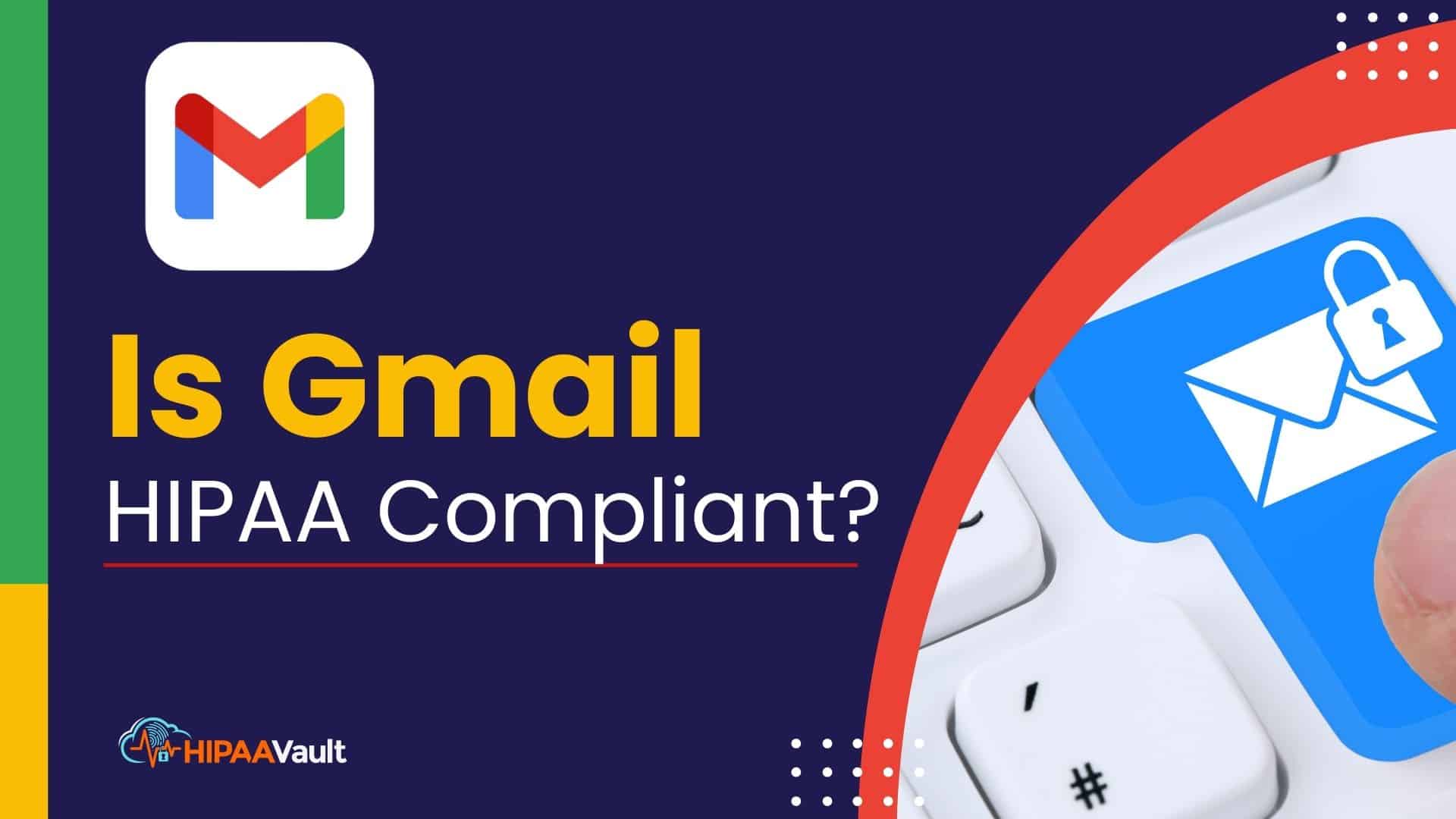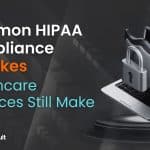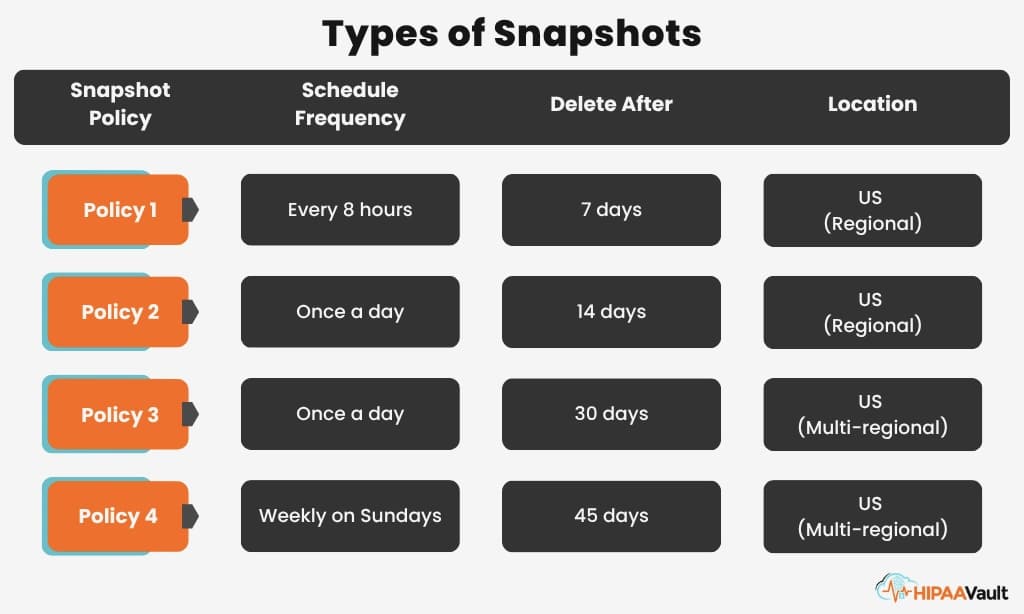Short answer:
No — Gmail is NOT HIPAA compliant by default.
However, Gmail can be configured to support HIPAA compliance if (and only if) very specific technical, administrative, and contractual requirements are met.
This distinction is where many healthcare organizations get into trouble. Simply using Gmail — even with Google’s strong security — does not make your email HIPAA compliant. Without a signed Business Associate Agreement (BAA), enforced encryption, proper access controls, and documented risk management, sending ePHI through Gmail can expose your organization to violations, audits, and breach notifications.
→ If your organization already uses Gmail, the safest next step is to verify whether your setup actually meets HIPAA requirements.
Check if your Gmail setup is HIPAA compliant
Why Standard Gmail Is NOT HIPAA Compliant
Free, consumer Gmail accounts are explicitly not designed for HIPAA-regulated data. While Google uses strong baseline security, HIPAA compliance requires far more than encryption “in transit.”
Standard Gmail lacks:
- A Business Associate Agreement (BAA)
- Enforced access controls suitable for ePHI
- HIPAA-aligned audit logging and retention
- Administrative safeguards and documentation
- Configuration controls required by the HIPAA Security Rule
Google’s own terms prohibit using consumer Gmail for regulated healthcare data. This means that even one patient email containing PHI could constitute a reportable compliance issue.
Stop Sending PHI Over Unsecured Email
Protect your practice from data leaks. Our email service automatically encrypts sensitive patient information.
Learn MoreWhen Can Gmail Be HIPAA Compliant?
Gmail can only be used for HIPAA-related communication when it is part of Google Workspace (formerly G Suite) and properly configured.
Minimum Requirements for HIPAA-Compliant Gmail
To legally use Gmail with ePHI, all of the following must be true:
- Google Workspace account (not free Gmail)
- Signed Business Associate Agreement (BAA) with Google
- HIPAA Security Rule–aligned configuration
- Encryption for email content and attachments
- Documented policies and procedures
- A completed HIPAA Risk Assessment
If any of these elements are missing, Gmail does not meet HIPAA requirements.
HHS makes clear that compliance depends on how systems are configured and managed — not the software alone
What Google Does Not Do for You
This is one of the most misunderstood aspects of Gmail and HIPAA.
Even with Google Workspace and a BAA, Google does not:
- Configure Gmail for your specific risk profile
- Prevent staff from misusing email
- Train your workforce on HIPAA email policies
- Monitor or flag compliance violations
- Perform or document your HIPAA Risk Assessment
- Accept liability for your compliance failures
HIPAA places responsibility squarely on the covered entity or business associate — not the software vendor.
This is why many organizations choose a managed HIPAA email solution rather than a DIY setup.
HIPAA Security Rule Requirements Gmail Must Support
Under HIPAA §164.312, any system used to transmit ePHI must support specific technical safeguards.
Access Controls (§164.312(a))
- Unique user identification
- Role-based access
- Automatic logoff
- Encryption and decryption mechanisms
Audit Controls (§164.312(b))
- Systems that record and examine activity involving ePHI
- Retained and reviewable logs
Integrity Controls (§164.312(c))
- Protection against improper alteration or destruction of ePHI
- Mechanisms to authenticate data integrity
Person or Entity Authentication (§164.312(d))
- Verification that users accessing ePHI are who they claim to be
Transmission Security (§164.312(e))
- Encryption of ePHI transmitted over electronic networks
- Protection against unauthorized access
Gmail can technically support many of these controls — but only when configured, enforced, and documented correctly.
Common Gmail HIPAA Violations We See
From real-world assessments and breach investigations:
- Staff emailing PHI to personal Gmail accounts
- No encryption for outbound patient emails
- Shared inboxes without access controls
- No audit log review or retention
- No HIPAA Risk Assessment on file
- Assuming “Google is compliant, so we are too”
These mistakes often surface after:
- A patient complaint
- A lost device
- A phishing incident
- An OCR investigation
DIY Gmail vs Fully Managed HIPAA Email
| Feature | DIY Google Workspace | Managed HIPAA Gmail |
| Google BAA | Manual | Included |
| Encryption | Optional / user-dependent | Enforced |
| Admin Configuration | IT responsibility | Expert-managed |
| HIPAA Risk Assessment | Not included | Available |
| Audit Readiness | Limited | Guided |
| Ongoing Compliance | High internal burden | Reduced risk |
Best Way to Use Gmail for HIPAA (Without Risk)
For most healthcare organizations, the safest and most scalable approach is:
- Google Workspace
- Signed BAA
- Managed HIPAA-compliant email configuration
- Enforced encryption (e.g., Virtru)
- Ongoing monitoring and documentation
HIPAA Vault provides HIPAA Compliant Gmail with:
- Proper Google Workspace configuration
- Encryption for email and attachments
- BAA coverage
- Compliance guidance and audit support
→ Request HIPAA Compliant Gmail
→ Start a HIPAA Risk Assessment
FAQ: Gmail & HIPAA Compliance
Final Takeaway
- Free Gmail is not HIPAA compliant
- Google Workspace can be, but only with:
- A BAA
- Encryption
- Proper configuration
- Policies, training, and a risk assessment
- HIPAA compliance is a process, not a product
+If Gmail is part of your workflow, make sure it’s configured correctly — before it becomes a liability. → Talk to a HIPAA Vault Email Expert






